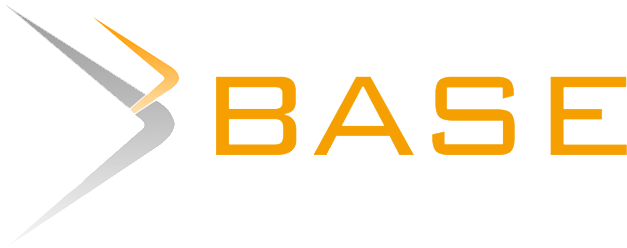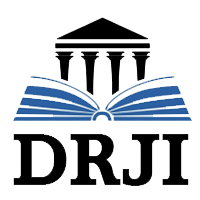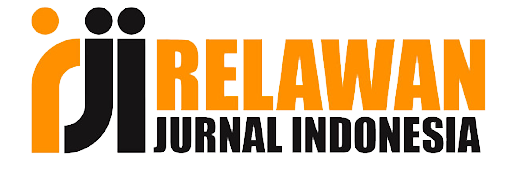Hubungan Flow dengan Kesejahteraan Psikologis pada Atlet Mahasiswa Universitas Diponegoro
Abstract
The psychological well-being of student athletes has not been a priority in studies in the fields of education and sports. The psychological well-being part of positive psychology tries to explore the potentials that contribute to the optimization of aspects of life. This study aims to empirically prove the role of flow in the psychological well-being of student athletes. This study uses a quantitative approach. The subjects in this study were 54 student athletes at Universitas Diponegoro. The instruments used were the Flow Scale (α = 0.917) and the Psychological Well-Being Scale (α = 0.899). The results of analysis showed that there is a strong relationship between flow and the psychological well-being of student athletes (R = 0, 684, p < 0,001). The conclusion of this study is that there is a significant and positive relationship between flow and psychological well-being in student athletes at Universitas Diponegoro. Future research can reach students from various universities so that the results can be generalized broader. Universities can create a kind of training to strengthen students' intrinsic motivation considering the large correlation with psychological well-being.
Kesejahteraan psikologis atlet mahasiswa belum menjadi prioritas dalam studi-studi di bidang pendidikan dan olahraga. Kesejahteraan psikologis menjadi bagian dari psikologi positif yang mencoba menggali potensi-potensi yang berkontribusi terhadap optimalisasi sisi-sisi kehidupan. Penelitian ini bertujuan untuk membuktikan secara empirik korelasi flow dalam kesejahteraan psikologis pada atlet mahasiswa. Penelitian ini menggunakan pendekatan kuantitatif. Sebanyak 54 atlet mahasiswa di Universitas Diponegoro menjadi subjek dalam penelitian. Instumen penelitian yang digunakan yaitu Skala Flow (α=0.917) dan alat ukur Kesejahteraan Psikologis (α= 0.899 ). Hasil analisis menunjukkan terdapat hubungan yang signifikan dan positif antara flow dengan kesejahteraan psikologis pada atlet mahasiswa (R = 0, 684, p < 0,001). Kesimpulan penelitian ini adalah terdapat hubungan yang signifikan dan positif antara flow dengan kesejahteraan psikologis pada atlet mahasiswa di Universitas Diponegoro. Penelitian kedepan dapat melibatkan mahasiswa dari berbagai kampus agar hasil penelitiannya dapat digeneralisasi pada mahasiswa secara umum. Universitas dapat membuat semacam pelatihan untuk dapat menguatkan motivasi instrinsik mahasiswa mengingat besarnya korelasi dengan kesejahteraan psikologis.
Keywords
Full Text:
PDFReferences
Affrida, E. N. (2017). Makna konflik peran pada mahasiswa dengan peran ganda. Wahana, 68(1), 23-26. https://doi.org/10.36456/wahana.v68i1.631
Aini, N. Q., & Fahriza, I. (2020). Flow akademik pada pendidikan. Jurnal Dinamika Pendidikan, 13(3), 369-376. https://doi.org/10.51212/jdp.v13i3.1633
Alikaşifoğlu, M., & Ercan, O. (2002). Drug use among adolescents. Turkish Pediatrics Archives, 37, 66–73.
Asakawa, K. (2004). Flow experience and autotelic personality in Japanese college students: How do they experience challenges in daily life?. Journal of Happiness studies, 5(2), 123- 154.
Asher, S. R., & Paquette, J. A. (2003). Loneliness and peer relations in childhood. Current Directions in Psychological Science, 12, 75–78.
Aulia, S., & Panjaitan, R. U. (2019). Kesejahteraan psikologis dan tingkat stres pada mahasiswa tingkat akhir. Jurnal keperawatan jiwa, 7(2), 127.
Apriliana, R. (2023). Pengaruh otonomi kerja dan efikasi diri terhadap kesejahteraan psikologis dengan motivasi intrinsik sebagai variabel mediasi (Studi pada pekerja ojek online di kota yogyakarta) [Thesis, Universitas Atma Jaya]. Perpustakaan Universitas Atma Jaya. https://e-journal.uajy.ac.id/31007/
Azarine, D. D., & Yanuvianti, M. (2015). Studi deskriptif mengenai pengalaman flow pada atlet olahraga climbing di skygers Bandung. Prosiding Psikologi, 324-332.
Baer, R. A., Smith, G. T., Hopkins, J., Krietemeyer, J., & Toney, L. (2006). Using self-report assessment methods to explore facets of mindfulness. Assessment, 13(1), 27–45. https://doi.org/10.1177/1073191105283504
Bakker, A. B., dan Schaufeli, W. B. (2008). Positive organizayional behavior: Engaged employees in flourishing organizations. Journal of Organizational Behavior, 29 (2), 147-154.
Bakker, A. B, & Woerkom, M. (2017). Flow at work: A self-determination perspective. Occupational Health Science, 1.
Balkaya, Ayşen & Ceyhan, Esra. (2007). Investigating the levels of sense of identity acquisition of high school students in terms of some variables. Anadolu University Journal of Social Sciences. 7. 433-446.
Brown, J. (2001). Sport talent: How to identity and develop outstanding athletes. Human Kinetics.
Bücker, S., Nuraydin, S., Simonsmeier, B. A., Schneider, M., & Luhmann, M. (2018). Subjective well-being and academic achievement: A meta-analysis. Journal of Research in Personality, 74, 83-94. https://doi.org/10.1016/j.jrp.2018.02.007
Burke RJ, Matthiesen SB. (2004). Correlates of flow at work among Norwegian journalists. Journal of Transnational Management, 10, 49-58.
Carpentier, J., Mageau, G. A., & Vallerand, R. J. (2012). Ruminations and flow: Why do people with a more harmonious passion experience higher well-being?. Journal of Happiness studies, 13(3), 501-518.
Chou, T. J., & Ting, C. C. (2003). The role of flow experience in cyber-game addiction. CyberPsychology & Behavior, 6(6), 663-675.
Compton, W. C. (2005). An introduction to positive psychology. Thompson Wadsworth.
Csikszentmihalyi, M. (1975). Beyond boredom and anxiety. Jossey-Bass.
Csikszentmihalyi, M., & Csikszentmihalyi, I. S. (2000). Optimal experience: Psychological studies of flow in consciousness. Cambridge University Press.
Csikszentmihalyi, M. (2008). Flow: the psychology of optimal experience. Harper Perennial.
Csikszentmihalyi, M. (2013). Flow: The psychology of happiness. Random House.
Csikszentmihalyi, M (2014). Applications of flow in human development and education. Springer Dordrecht.
Csikszentmihalyi, M., & Larson, R. (1987). Validity and reliability of the experience-sampling method. The Journal of Nervous and Mental Sisease, 175(9), 526-536.
Shernoff, D. J., & Csikszentmihalyi, M. (2009). Flow in schools: Cultivating engaged learners and optimal learning environments. In Handbook of positive psychology in schools (pp. 131-146). Routledge.
Dana, T. S., Eva, N., & Andayani, S. (2022). Kepercayaan diri dan kesejahteraan psikologis anggota organisasi mahasiswa. Jurnal Psikologi Perseptual, 7(1), 28.
Deci E. L. & Ryan R. M. (2008) Facilitating optimal motivation and psychological well-being across life's domains. Canadian Psychology/Psychologiecanadienne, 49(1), 14-23. https://doi.org/10.1037/0708-5591.49.1.14
Deci, E. L. (2011). Intrinsic motivation (Revised ed.). Springer Publishing
Demerouti E. (2006). Job characteristics, flow, and performance: The moderating role of conscientiousness. Journal of Occupational Health Psychology, 11, 266-280.
Dewi, K. S. (2012). Buku ajar kesehatan mental. UNDIP Press.
Edwards D. J. & Steyn B. J. (2008). Sport psychological skills training and psychological well-being. South African Journal for Research in Sport, Physical Education and Recreation, 30(1), 15-28. https://doi.org/10.4314/sajrs.v30i1.25978
Erpiana, A. & Fourianalistyawati, E. (2018). Peran trait mindfulness terhadap psychological well-being pada dewasa awal. Psympathic: Jurnal Ilmiah Psikologi, 5(1), 67-82. 10.15575/psy.v5i1.1774
Jalil, U. R., Fanggidae, R. E., & Fanggidae, A. H. (2020). Pengaruh konflik peran ganda dan psychological well-being terhadap kinerja (studi pada perawat wanita rsud sk lerik kota Kupang). Jurnal Ekobis: Ekonomi Bisnis & Manajemen, 10(2), 237-247.
Fritz, B. S., & Avsec, A. (2007). The experience of flow and subjective well-being of music students. Horizons of Psychology, 16 (2), 5-17.
Gatari, A. (2020). Hubungan stres akademik dengan flow akademik pada mahasiswa. Cognicia, 8(1), 79-89. https://doi.org/10.22219/cognicia.v8i1.11739
Alamdarloo, G. H., Shojaee, S., Asadmanesh, E., Sheikhani Shahin, H., Rangani, A., & Negahdarifard, S. (2019). A comparison of psychological well-being in athlete and non-athlete women. Baltic Journal of Health and Physical Activity, 11(2), 11.
Ghasempour,A., Jodat, H, Soleimani, M., Shabanlo, K.Z.,. (2013). Happiness as a predictor of psychological well-being of male athlete students. Annals of Applied Sport Science, 1(2). 25-32.
Ghiami Z., Khalaghi K. & Soh K. G. (2015). Comparison of mental health components among athlete and non-athlete adolescents. International Journal of Kinesiology & Sports Science, 3(3), 33. https://doi.org/10.7575/aiac.ijkss.v.3n.3p.33
Gross, J. J. & Thompson, R. A. (2007). Emotion regulation: Conceptual foundation. In J.J. Gross (ed) Handbook of emotion regulation. Guilford Press.
Gül, O., Çağlayan, H.S, Akandere, M. (2017). The effect of sports on the psychological well-being levels of high school students. Journal of Education and Training Studies, 5(5). 72-80. 10.11114/jets.v5i5.2270
Haworth, J. T. (2006). Enjoyment and well-being. In work, leisure and well-being (pp. 95-114). Routledge.
Haworth, J. (2016). Enjoyment and wellbeing. Cwipp working paper no.6, centre for wellbeing in public policy, University of Sheffield.
Heizomi, H., Allahverdipour, H., Jafarabadi, M. A., & Safaian, A. (2015). Happiness and its relation to psychological well-being of adolescents. Asian journal of psychiatry, 16, 55-60. https://doi.org/10.1016/j.ajp.2015.05.037
Hidalgo, J. L. T., Bravo, B. N., Martínez, I. P., Pretel, F. A., Postigo, J. M. L., & Rabadán, F. E. (2010). Psychological well-being, assessment tools and related factors. Psychological well-being, 2010, 77-113.
Huda, S. N. (2023). Pengaruh resiliensi dan kebahagiaan terhadap kinerja perawat melalui kepuasan kerja sebagai variabel intervening pada Rumah Sakit Pondok Indah. Jurnal Manajemen, 7(2), 1–10. https://doi.org/10.54964/manajemen.v7i2.207
Ilies, R., Wagner, D., Wilson, K., Ceja, L., Johnson, M., DeRue, S. and Ilgen, D. (2017), Flow at Work and Basic Psychological Needs: Effects on Well-Being. Applied Psychology, 66, 3-24. https://doi.org/10.1111/apps.12075
Istyawati, U. D. A., Moordiningsih, M. (2018). Dampak kesejahteraan psikologis pada penampilan puncak atlet BPPLOP Jawa Tengah. [Skripsi, Universitas Muhammadiyah Surakarta]. Perpustakaan Universitas Muhammdiyah Surakarta. https://eprints.ums.ac.id/62347/
Keyes, C.L.M. (2013). Promoting and protecting positive mental health: early and often throughout the lifespan. In: Keyes, c. (eds) mental well-being. Springer, Dordrecht. https://doi.org/10.1007/978-94-007-5195-8_1
Keyes, C. L., Shmotkin, D., & Ryff, C. D. (2002). Optimizing well-being: the empirical encounter of two traditions. Journal Of Personality And Social Psychology, 82(6), 1007.
Klapp, T., Klapp, A. & Gustafsson, J. E. (2024). Relations between students’ well-being and academic achievement: evidence from Swedish compulsory school. European Journal of Psychology of Education, 39, 275–296. https://doi.org/10.1007/s10212-023-00690-9
Lakoy, F. S. (2009). Psychological well-being perempuan bekerja dengan status menikah dan belum menikah. Jurnal psikologi, 7(2), 71-80.
Lordan, G. & Pakrashi D. (2014). Make time for physical activity or you may spend more time sick!. Social Indicators Research, 119(3), 1379-1391.
Lynch, J. M., & Troy, A. S. (2021). The role of nonduality in the relationship between flow states and well-being. Mindfulness, 12(7), 1639-1652.
Marzuki, M. (2024). Kondisi flow pada atlet paralympics tunadaksa dalam meraih prestasi nasional cabang olahraga atletik. [Skripsi, Universitas Jambi]. Perpustakaan Universitas Jambi. https://repository.unja.ac.id/59242/
Medora, N., Woodward, J., & Larson, J. (1987). Adolescent loneliness: A cross–cultural comparison of Americans and Asian Indians. International Journal of Comparative Sociology, 28, 204–210. https://doi.org/10.1177/002071528702800306.
Mehta, P., & Vyas, M. (2022). A systematic literature review on the experience of flow and its relation to intrinsic motivation in students. Indian Journal of Positive Psychology, 13(3), 299-304.
Muratlı, S. (1997). Children and Sports. Bağırgan Publishing.
Mustofa, A. C., & Prasetyo, A. R. (2020). Hubungan antara kebahagiaan di tempat kerja dengan kepuasan kerja pada perawat bagian rawat inap Rumah Sakit Islam Sultan Agung Semarang. Jurnal Empati, 8(4), 665-671.
Nakamura, J., & Csikzentmihalyi, M. (2003). The construction of meaning through vital engagement. In C. L. M. Keyes & J. Haidt (Eds.), Flourishing: Positive psychology and the life well-lived (pp. 83–104). American Psychological Association.
Nastiti, D., & Cahyani, C. N. (2022). Dukungan sosial teman sebaya dan flow akademik pada mahasiswa psikologi Universitas Muhammadiyah Sidoarjo. Helper: Jurnal Bimbingan dan Konseling, 39(1), 13-21.
Nuzulia, A., & Hidayah, N. (2022). Prokrastinasi akademik dan flow akademik dengan stres akademik pada mahasiswa. Jurnal Psikologi Terapan dan Pendidikan, 4(2), 64. http://dx.doi.org/10.26555/jptp.v4i2.24455
Penedo, F. J., & Dahn, J. R. (2005). Exercise and well-being: a review of mental and physical health benefits associated with physical activity. Current opinion in psychiatry, 18(2), 189–193. https://doi.org/10.1097/00001504-200503000-00013
Permana, D. A, Suryanto, S., & Priambodo, A. (2022). Kecemasan dan percaya diri atlet atletik menjelang pertandingan. Jurnal Psikologi Perseptual, 7(1), 4-12.
Putri, A. F. (2019). Pentingnya orang dewasa awal menyelesaikan tugas perkembangannya. SCHOULID: Indonesian Journal of School Counseling, 3(2), 35-40
Ramadhani, T., Djunaedi, D., & Sismiati, A. (2016). Kesejahteraan Psikologis (psychological well-being) siswa yang orangtuanya bercerai (studi deskriptif yang dilakukan pada siswa di smk negeri 26 pembangunan Jakarta). Insight: Jurnal Bimbingan Konseling, 5(1), 108-115.
Rijavec, M., Golub, T. L., & Olcar, D. (2016). Can learning for exams make students happy? Faculty-related and faculty un-related flow experiences and well-being. Croatian Journal of Education, 18(1), 153-164. https://doi.org/10.15516/cje.v18i0.2223.
Ryff, C. D. (1989). Happiness is everything, or is it? Explorations on the meaning of psychological well-being. Journal of Personality and Social Psychology, 57(6), 1069–1081. https://doi.org/10.1037/0022-3514.57.6.1069
Salanova, M., Bakker, A. B., & LIorens, S. (2006). Flow at work: Evidence for an Upward Spiral of Personal and Organizational Resources. Journal of Happiness Studies, 7, 1-22. https://doi.org/10.1007/s10902-005-8854-8.
Shernoff, D. J., Csikszentmihalyi, M., Schneider, B., Shernoff, E. S. (1985). Student engagement in high school classrooms from perspective of flow theory. Journal School Psychology Quarterly, 18(2), 158-176. 10.1521/scpq.18.2.158.21860
Sianipar, A. (2018). Hubungan antara flow dan authentic leadership dengan psychological well-being pada pegawai. [Skripsi, Unika Soegijapranata]. Perpustakaan Unika Soegijapranata. http://repository.unika.ac.id/id/eprint/18829
Sultoni, A. (2021). Pengaruh kepemimpinan transformasional, motivasi intrinsik, dan kesejahteraan psikologis terhadap prestasi kerja karyawan pada pt krakatau steel (persero) tbk. [Tesis, Universitas Mercu Buana]. Perpustakaan Universitas Mercu Buana. https://repository.mercubuana.ac.id/78687/
Tumanggor, Y.P, Aritonang, R., Nabila, A.S, Alvionita, N., Marpaung, W. (2021). Psychological well-being ditinjau dari mindfulness pada atlet remaja difabel. Jurnal Penelitian Pendidikan, Psikologi dan Kesehatan (J-P3K), 2(2), 102-106. https://doi.org/10.51849/j-p3k.v2i2.86
Wanner, B., Ladouceur, R., Auclair, A. V., & Vitaro, F. (2006). Flow and dissociation: examination of mean levels, cross-links, and links to emotional well-being across sports and recreational and pathological gambling. Journal of gambling studies, 22(3), 289–304. https://doi.org/10.1007/s10899-006-9017-5.
Wijaya, J. A. D. P., & Jannah, M. (2021). Perbedaan strategi regulasi emosi pada mahasiswa atlet dan non atlet universitas negeri Surabaya. Character: Jurnal Penelitian Psikologi, 8(8), 83-89.
Wood, C., Angus, C., Pretty, J., Sandercock, G., & Barton, J. (2013). A randomised control trial of physical activity in a perceived environment on self-esteem and mood in UK adolescents. International Journal Of Environmental Health Research, 23(4), 311–320. https://doi.org/10.1080/09603123.2012.733935
Yahya, S. D., & Yulianto, H. (2018). Burnout sebagai implikasi konflik peran ganda (pekerjaan-kuliah) pada mahasiswa yang bekerja di kota makassar. Akmen Jurnal Ilmiah, 15(4), 564–573.
Zeng, D., Takada, N., Hara, Y., Sugiyama, S., Ito, Y., Nihei, Y., & Asakura, K. (2022). Impact of intrinsic and extrinsic motivation on work engagement: A cross-sectional study of nurses working in long-term care facilities. International journal of environmental research and public health, 19(3), 1284. https://doi.org/10.3390/ijerph19031284
DOI: https://doi.org/10.24176/perseptual.v9i1.11916
Article Metrics
Refbacks
- There are currently no refbacks.

Jurnal Psikologi Perseptual (eISSN 2580-9520) is licensed under a Creative Commons Attribution-ShareAlike 4.0 International License














